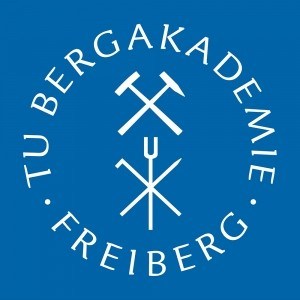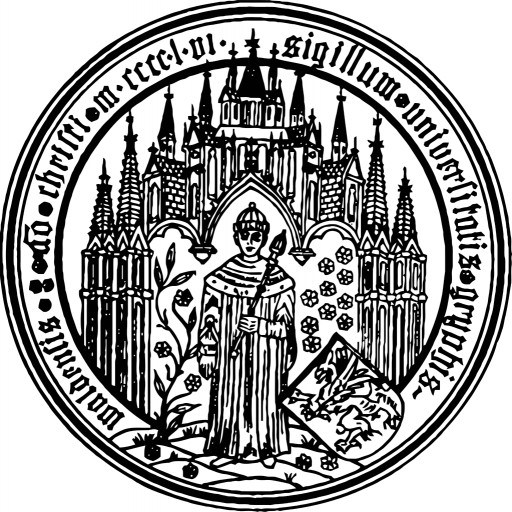The Geoscience program at Freiberg University of Mining and Technology offers a comprehensive and rigorous education in the fundamental and applied aspects of earth sciences. This program is designed for students who are passionate about understanding the Earth's processes, its structure, composition, and evolution, as well as those interested in exploring natural resources, environmental protection, and sustainable development. The curriculum combines theoretical knowledge with practical skills, preparing graduates to address complex geological challenges in various industries, including mining, environmental consulting, and natural resource management.
Students will engage with a wide range of subjects such as mineralogy, petrology, geophysics, geochemistry, and structural geology, gaining a deep understanding of how the Earth's components interact and evolve over geological time scales. The program emphasizes modern technological approaches, including geophysical surveying, GIS, remote sensing, and computer modeling, enabling students to analyze and interpret geological data effectively. Additionally, coursework covers important topics like hydrogeology, sedimentology, and tectonics, providing a holistic view of Earth's dynamic systems.
The program also places significant emphasis on practical experience. Students will have the opportunity to participate in fieldwork in diverse geological settings, internships with industry partners, and laboratory exercises that simulate real-world challenges. These activities enable students to develop critical skills in data collection, analysis, and reporting, which are essential for careers in research, consultancy, or the resource extraction industry.
Faculty members are recognized experts in their fields, dedicated to fostering an innovative learning environment. The university’s strong connections with industry and research institutions provide students with access to cutting-edge technology, research projects, and career opportunities. The Geoscience program aims to produce highly qualified graduates capable of contributing to sustainable development, environmental conservation, and the responsible utilization of Earth’s resources.
Graduates of this program will be well-equipped for diverse roles such as geological surveyors, environmental consultants, resource managers, and research scientists. They will also be prepared for advanced studies or research careers in geosciences. With its combination of theoretical knowledge, practical skills, and research opportunities, the Geoscience program at Freiberg University of Mining and Technology is an excellent choice for students committed to understanding our planet and making a positive impact on society.
Educational organisation
The low student-to-teacher ratio ensures individual attention for each student. The condensed curriculum and the diverse educational backgrounds of the participants demand their full commitment to independent study. Project work, seminars and home assignments are included. Having successfully passed the exams in three semesters, students complete the programme with a Master's thesis (six months) covering a research area offered by the respective supervisors. Publication of research results is appreciated and students will be trained in communication techniques: how to write a scientific paper and how to present results in a talk or poster at international conferences.For exceptional cases a fast track option to enter a PhD programme is available.
Study abroad unit(s)
Participants may spend one or two semesters at partner universities of the TU Bergakademie Freiberg. A minimum of 60 credits have to be earned from the TU Bergakademie Freiberg.Internships
Available on requestForms of assessment
Courses, lectures, presentations and training will be graded using the European credit point system. Exams may be oral or written. Prerequisites for some examinations are home assignments, reports and presentations by the students. A total of 120 ECTS points is required, of which 30 ECTS points are awarded for the Master's thesis. This consists of the written thesis and a public defence (presentation and discussion). Up to a maximum of 50% of the ECTS credits may be from other universities with the ECTS credit point system in place.Course objectives
Successful candidates will be specialists, but will be able to adapt to various contexts and will be capable of successful cooperation. They will be able to independently lead research projects and take over leadership responsibility. Thus, students will be put in a position to independently evaluate scientific problems, write reports and papers and present results.Language requirements
Applicants must provide proof of sufficient English proficiency: TOEFL 550 (paper-based), 213 (computer-based), 79 (internet-based) or equivalent. This test can be waived if an applicant has done his Bachelor's degree in a country where English is the official language or English is the applicant's mother tongue.Academic requirements
Bachelor's degree in geosciences or related subjectEnrolment fees
Approx. 90 EUR per semesterCosts of living
Living costs amount to 500-600 EUR per month, which includes accommodation, insurance, food, sports, and other expenses.Job opportunities
Many consulting firms located in and around Freiberg offer jobs and internships. The department offers jobs related to research projects and teaching obligations for outstanding students with excellent language skills (either in English or in German).Postgraduate students may work as scientific/teaching assistants (wissenschaftliche Hilfskraft) at the University for a maximum of 80 hours per month.
Students from abroad should enquire at the Registration Office for Foreign Nationals (Ausländerbehörde) to ascertain if they need a work permit for working at the university.
Funding opportunities within the university
The "Deutschlandstipendium" is open to international students. However, this stipend will be granted only to outstanding students.http://tu-freiberg.de/en/economy/deutschlandstipendium
Arrival support
The International Centre provides support to new international students by assigning a mentor to each new student. A buddy is a German or international student who speaks German and English, sometimes French, Spanish or Russian. The mentor takes the newcomer through the first steps in Freiberg and at the university, i.e. picking the student up at the train station upon arrival, helping with enrolment, and with all other required administrative formalities (e.g. health care, opening a bank account, administrative formalities at city hall). Students who wish to participate need to register well in advance of their arrival (http://www.iuz.tu-freiberg.de).Services and support for international students
Intensive and individual professional advice is provided by the supervisors and coordinators of the programme. The International Centre offers support to all international students within the mentor programme, German language courses as well as information and consultation about studying and living in Freiberg.Student initiatives offer valuable cultural services for all students and PhD students at the TU Bergakademie Freiberg and support the intercultural exchange at the university. Their activities include the international weekend at the beginning of the winter semester, the regular international corner with topical events, and trips to interesting places in Germany.
Psychological counselling is also provided to all students in need.
Accommodation
Both dormitories and private accommodation are available. In Freiberg, many students choose to live in their own flats or to share flats as part of a WG (WG = "Wohngemeinschaft"). Flats are in many cases unfurnished, although built-in kitchens are usually provided.Rent for a single room is approx. 170-350 EUR per month. Often, a deposit of two to three months' rent has to be paid. Most prices given by private landlords are quoted without the price for utilities such as heating, water, and electricity. This rental pricing without services is called "Kaltmiete". The additional expense for utilities is usually about 150-200 EUR per month.
Private accommodation can be found on the internet at:
http://www.studenten-wg.de
http://www.wohnungsgesellschaft.de (Städtische Wohnungsgesellschaft Freiberg)
http://www.rwr.de (RWR Immobilien Freiberg)
http://www.studentenwohnheim-freiberg.de
Only a very limited number of rooms in the student hall of residence Max Kade Haus are available for doctoral students: http://www.studentenwerk.tu-freiberg.de.
The International Centre offers support with finding accommodation on the private market (http://www.iuz.tu-freiberg.de).







